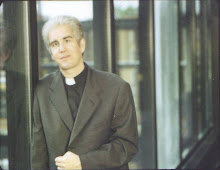A few days ago, the group I was lunching with sang the Doxology as our table grace. Someone in the group then offered to teach us a version that employs more inclusive language to name God. I heard people in the group for whom traditional Trinitarian language brings heartache and even heartbreak express appreciation for the alternative. I cognitively agreed and found myself emotionally resisting. “Do we have to fuss even with the Doxology?” I found myself thinking. At some level, my “childhood faith” felt threatened and my sense of stability shaken.
I notice a trend in some sermons these days is to omit Jesus. “Salvation,” if we can call it that, is grounded in a Creator God who made us “good” and in “the divine image,” and “loves you just the way you are.” Part of the rationale for this message, I am advised, is hospitality. We do not want to offend people of other faiths, specifically are Jewish and Muslim brothers and sisters. While I can intellectually wrap my mind around this, my heart longs to hear some unpacking of “Jesus died for your sins.” When I preach in congregations, I frequently find that I am not alone as people describe my sermons as “old time preaching” or “preaching like we used to hear.”
I am not complaining or even being “snarky,” as my students say. I am observing the tension I experience between head and heart. I suspect that, in the three vignettes I have described, the tension cuts both ways. Someone might intellectually appreciate the beauty of the language of the King James Version, and be emotionally troubled by the places the translation is less accurate. One might know that the language of the creeds is not intended to name the gender of the divine, and still be pained by the ways that language evokes a patriarchal church. One might be totally committed to preaching Christ crucified as the power and wisdom of God (1 Cor. 1 23-24) and nevertheless feel embarrassed and ashamed by ways John 14:6—“Jesus said to him, “I am the way, and the truth, and the life. No one comes to the Father except through me”—has been preached.
At this moment in my thinking, the most I can offer is my hunch that both preachers and hearers experience tension between head and heart. And even as we ask deep questions of life, faith, and meaning, we do not want our “childhood faith” shaken too badly, and certainly not destroyed. And I suspect that this tension will manifest itself in many, both preachers and hearers, when it comes to sermons for Thanksgiving and Christ the King.
Pastor Amy Allen, who contributes this set of preaching helps, observes that, nowadays, we know the first Thanksgiving didn’t happen the way our third grade plays taught us, fewer people come to the community Thanksgiving worship than we remember from that rosier past, and some congregations and communities have stopped celebrating this holiday altogether. Turning to Christ the King, Pastor Allen observes:
We live in a day and age in which it has become politically incorrect to talk about the ‘kingship’ of Christ. Such a term now brings with it all the baggage of patriarchal interpretations of the biblical text. More than that, it calls to mind the exploitation brought about by colonial powers, abuses of power at the hands of politicians, and perhaps every abuse of power—every moment when one human being has claimed or does claim dominion over another human being.
To both these observances, she adds an important “However.” For Thanksgiving: “However, even as the American civic religion shows its cracks and more preachers rightly seek to avoid platitudes that give simple lip service to the state, there remains reason to give thanks.” For Christ the King: “However, it is because of such abuses of power at the hands of human beings that we as a church, while respectfully rethinking our vocabulary, cannot give up on the reigndom of Christ. For such abuses and abusers are the beasts defeated in Daniel’s court of judgment (7:11).”
Perhaps the task is not to put away childhood faith but to employ it to embolden us. Perhaps that’s what Jesus meant when he said, “Truly I tell you, unless you change and become like children, you will never enter the kingdom of heaven” (Matthew 18:3).

No comments:
Post a Comment